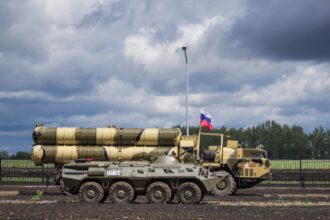Blackwater Security was established in 1997 by former Navy SEAL Erik Prince and his associates, with the vision of creating a private military company that could provide security services to government agencies and private clients. The company was founded in North Carolina, where it initially operated out of a modest facility. Prince’s military background and experience in special operations informed the company’s mission to deliver high-quality security solutions, particularly in high-risk environments.
The name “Blackwater” was derived from the dark waters of the nearby swamps, symbolizing the company’s commitment to operating in challenging conditions. In its early years, Blackwater focused on training law enforcement and military personnel, offering courses in firearms, tactics, and survival skills. The company quickly gained a reputation for its rigorous training programs and professional standards.
As demand for private security services grew in the wake of global conflicts and rising terrorism threats, Blackwater positioned itself as a leader in the burgeoning private military industry. This strategic foresight would set the stage for the company’s significant involvement in international conflicts, particularly during the early 2000s.
Key Takeaways
- Blackwater Security was founded in 1997 by former Navy SEAL Erik Prince.
- Blackwater played a significant role in the Iraq War, providing security services and support to the U.S. government.
- The company faced numerous controversies, including the Nisour Square massacre in 2007, which resulted in the deaths of 17 Iraqi civilians.
- In 2011, Blackwater rebranded as Academi in an effort to distance itself from its controversial past.
- Blackwater secured lucrative contracts with the U.S. government, including providing security for U.S. officials in Iraq and Afghanistan.
Blackwater’s Role in the Iraq War
The Iraq War marked a pivotal moment for Blackwater Security, as the company was contracted by the U.S. government to provide security services for diplomats and military personnel. Following the invasion of Iraq in 2003, the need for private security became increasingly apparent due to the deteriorating security situation.
Blackwater’s personnel were deployed to protect U.S. officials, including those working in the newly established Coalition Provisional Authority. Their presence was seen as essential for ensuring the safety of American interests in a volatile environment.
Blackwater’s role expanded rapidly during this period, with the company providing armed security escorts for convoys and protecting key infrastructure. The firm’s operatives were often involved in high-stakes missions that required quick decision-making and tactical expertise. As the conflict escalated, Blackwater’s reputation grew, and it became synonymous with private military operations in Iraq.
However, this prominence also brought scrutiny and criticism, as the actions of Blackwater personnel began to raise ethical and legal questions.
Controversies Surrounding Blackwater

As Blackwater’s operations expanded in Iraq, so too did the controversies surrounding its conduct. The company’s personnel were involved in several high-profile incidents that raised concerns about accountability and oversight in private military operations. One of the most notorious events occurred in September 2007 when Blackwater operatives opened fire in Nisour Square, Baghdad, resulting in the deaths of 17 Iraqi civilians.
This incident sparked outrage both domestically and internationally, leading to calls for greater regulation of private military contractors. The Nisour Square shooting was not an isolated incident; it highlighted broader issues regarding the use of private security firms in conflict zones. Critics argued that companies like Blackwater operated with impunity, often lacking adequate oversight from government authorities.
The perception that these contractors were above the law fueled debates about the ethics of privatizing military functions and raised questions about the effectiveness of accountability mechanisms in place for private security firms.
Blackwater’s Rebranding as Academi
| Metrics | Data |
|---|---|
| Company Name | Academi |
| Rebranding Date | December 2011 |
| Reason for Rebranding | Image rehabilitation and legal issues |
| Services | Security, training, and risk management |
| Headquarters | McLean, Virginia, United States |
In response to mounting controversies and negative public perception, Blackwater underwent a significant rebranding effort in 2011, changing its name to Academi. This move was intended to distance the company from its troubled past and signal a new direction focused on training and security services rather than direct combat operations. The rebranding was part of a broader strategy to restore credibility and rebuild relationships with government clients and stakeholders.
Under the new name, Academi sought to emphasize its commitment to professionalism and ethical conduct in security services. The company expanded its training programs, offering courses not only for military personnel but also for law enforcement agencies and private security firms. By repositioning itself as a leader in training and consulting rather than direct engagement in conflict zones, Academi aimed to redefine its role within the private security industry while addressing concerns about accountability and oversight.
Throughout its history, Blackwater has secured numerous contracts with the U.S. government, particularly during periods of heightened military engagement abroad. These contracts often involved providing security services for diplomats, military personnel, and critical infrastructure in conflict zones.
The financial scale of these contracts was substantial, with billions of dollars allocated to private military firms like Blackwater during the Iraq War. The reliance on private contractors raised questions about the implications for military operations and governance. Critics argued that outsourcing security functions could undermine accountability and transparency within government operations.
Despite these concerns, Blackwater continued to receive contracts due to its perceived expertise and ability to operate effectively in high-risk environments. The company’s relationship with the U.S. government exemplified the growing trend of privatization within military operations.
Blackwater’s Involvement in Hurricane Katrina Relief
In addition to its military engagements, Blackwater’s capabilities were called upon during domestic crises, most notably during Hurricane Katrina in 2005. Following the devastating impact of the hurricane on New Orleans and surrounding areas, Blackwater was contracted by various state and local agencies to provide security services amid widespread chaos and lawlessness. The company’s personnel were deployed to assist with search-and-rescue operations and protect relief efforts.
Blackwater’s involvement in Hurricane Katrina relief efforts was met with mixed reactions. While some praised the company’s ability to respond quickly to urgent needs, others criticized its presence as an example of privatization encroaching on public safety functions. The deployment of private contractors during a domestic disaster raised important questions about the role of private entities in emergency response situations and their accountability to local communities.
Blackwater’s Legal Troubles

The controversies surrounding Blackwater culminated in a series of legal troubles that further tarnished its reputation. Following the Nisour Square incident, several Blackwater operatives faced criminal charges related to their actions during the shooting.
In addition to criminal charges against individual operatives, Blackwater faced civil lawsuits from victims’ families seeking justice for wrongful deaths and injuries caused by its personnel. These legal battles underscored the challenges of holding private contractors accountable for their actions while operating under government contracts. The legal troubles not only impacted Blackwater’s operations but also contributed to a broader conversation about the need for regulatory reforms within the private military industry.
Blackwater’s Impact on the Private Military Industry
Blackwater’s rise and subsequent controversies had a profound impact on the private military industry as a whole. The company’s prominence during conflicts like the Iraq War brought attention to the growing role of private contractors in modern warfare. As governments increasingly turned to private firms for security services, questions arose about the implications for military ethics, accountability, and oversight.
The actions of Blackwater set a precedent for other private military companies, influencing how they operated and interacted with government clients. The scrutiny faced by Blackwater prompted calls for greater regulation within the industry, leading to discussions about establishing standards for conduct and accountability among private contractors. As a result, Blackwater’s legacy extends beyond its own operations; it has shaped conversations about the future of privatized military functions.
Blackwater’s Transition to a Training and Security Services Company
Following its rebranding as Academi, Blackwater shifted its focus toward becoming a leading provider of training and security services rather than engaging directly in combat operations. This transition allowed the company to leverage its expertise while addressing concerns about accountability and ethical conduct within the industry.
The decision to pivot away from direct combat engagements reflected broader trends within the private military industry as companies sought to adapt to changing public perceptions and regulatory pressures. Academi’s emphasis on training not only provided a sustainable business model but also positioned it as a valuable resource for organizations seeking to enhance their security capabilities without resorting to armed engagements.
Blackwater’s activities have had significant implications for U.S. foreign policy, particularly regarding how military engagements are conducted abroad. The reliance on private contractors like Blackwater has influenced decision-making processes within government agencies, raising questions about accountability and oversight in foreign interventions.
As private firms took on roles traditionally held by military personnel, policymakers faced challenges related to governance and ethical considerations. The presence of private contractors has also shaped public perceptions of U.S. military actions overseas.
Incidents involving Blackwater have fueled debates about the morality of privatizing warfare and raised concerns about potential abuses of power by private entities operating without sufficient oversight. As such, Blackwater’s influence extends beyond its own operations; it has contributed to ongoing discussions about the future of U.S. foreign policy and military engagement strategies.
Blackwater’s Legacy and Future
Blackwater’s legacy is complex, marked by both significant contributions to security operations and profound controversies that have shaped public perceptions of private military contractors. As one of the most recognizable names in the industry, Blackwater has left an indelible mark on discussions surrounding privatization in warfare and security services. Looking ahead, Blackwater’s future remains uncertain as it continues to navigate challenges related to reputation management and regulatory scrutiny within an evolving landscape of private military operations.
The company’s transition toward training and consulting services reflects broader trends within the industry as stakeholders seek to address concerns about accountability while meeting growing demands for security solutions globally. In conclusion, Blackwater Security’s journey from its founding through controversies and rebranding illustrates both the potential benefits and pitfalls associated with privatizing military functions. Its impact on U.S.
foreign policy, legal frameworks governing private contractors, and public perceptions of security services will continue to resonate as discussions about privatization evolve in an increasingly complex global landscape.
The history of Blackwater Security, now known as Academi, is a complex narrative that intertwines with various aspects of modern military contracting and private security operations. For those interested in exploring more about the intricacies of private military companies and their roles in global conflicts, a related article can be found on In The War Room. This resource delves into the broader implications of private security firms and their influence on international security dynamics, providing a comprehensive understanding of the subject.
WATCH THIS! From Tehran to Blackwater: The Real Story
FAQs
What is Blackwater security?
Blackwater security is a private military company (PMC) that provides security, training, and logistics services to governments, corporations, and other organizations.
When was Blackwater security founded?
Blackwater security was founded in 1997 by Erik Prince and Al Clark.
What is the history of Blackwater security?
Blackwater security gained significant attention and controversy for its involvement in the Iraq War, where its employees were accused of using excessive force and causing civilian casualties. The company’s reputation suffered as a result, and it underwent rebranding and restructuring.
What is the current status of Blackwater security?
Blackwater security underwent several name changes and reorganizations, and it is currently known as Academi. The company continues to provide security and training services, with a focus on risk management and security solutions.




